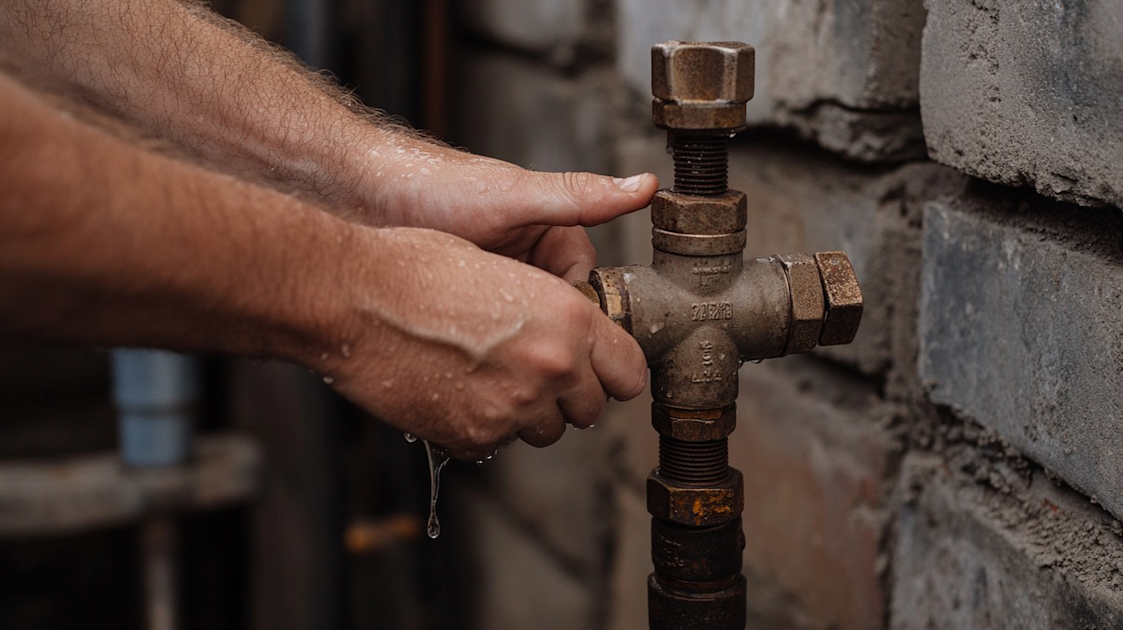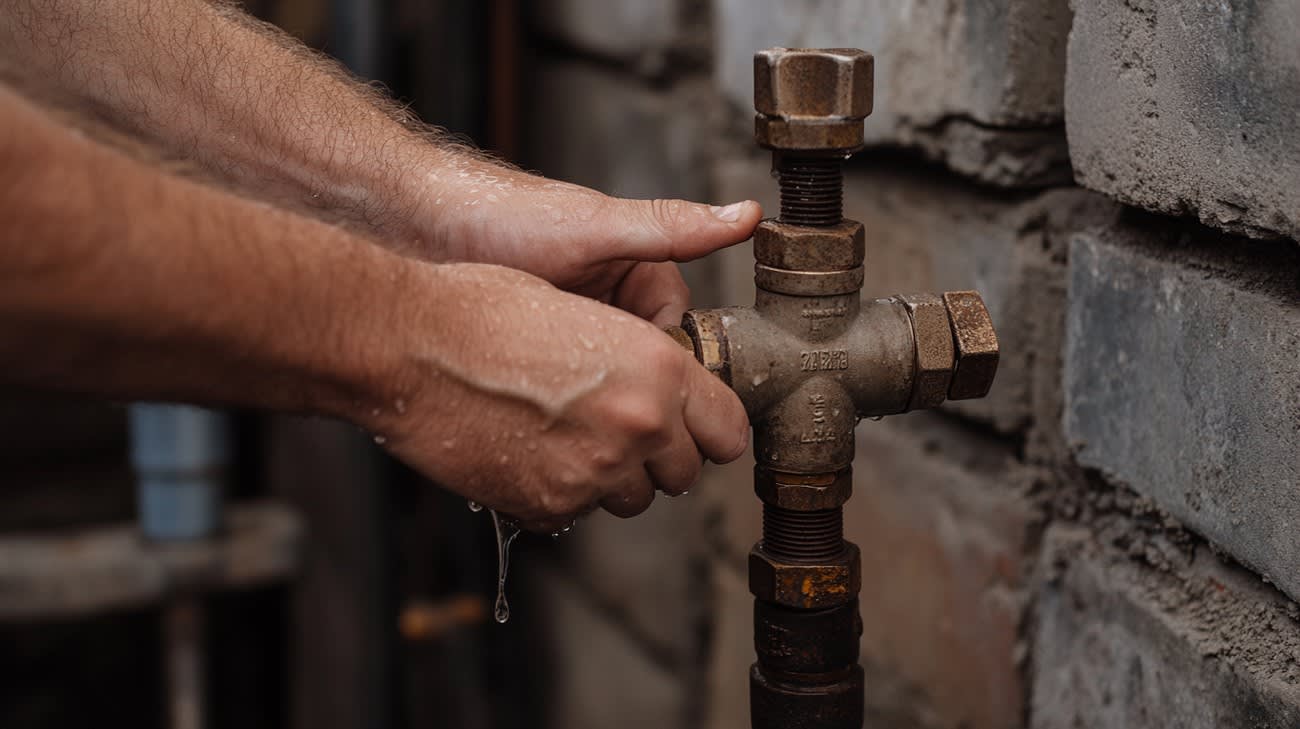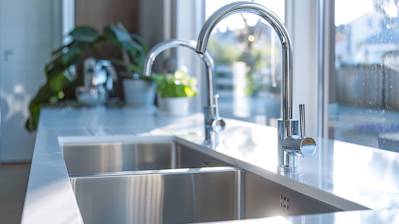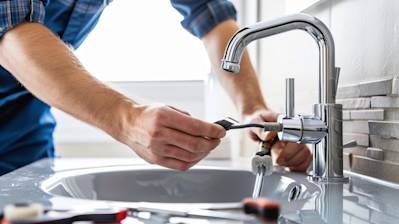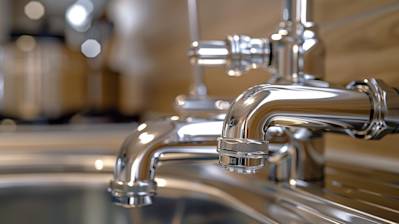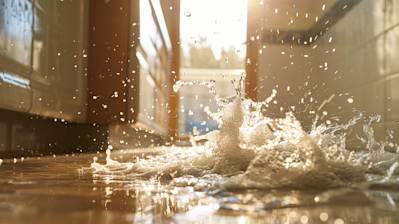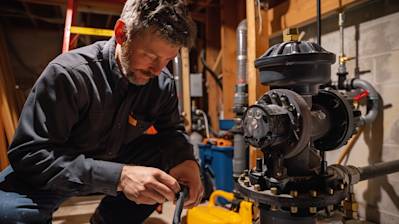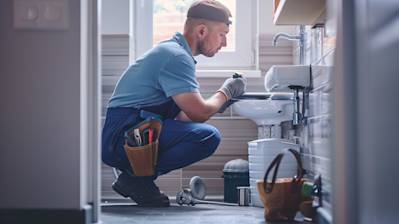Water shut-off valves are an integral aspect of any plumbing system. Even one faulty valve can lead to significant damage, both structural and economic. In this comprehensive guide, we will dive deep into understanding the process of water valve shut off, why it's critical, and the detailed steps to successfully close different types of valves.
Understanding the Necessity of Water Valve Shut Off
Shutting off your water valve can make a significant difference during emergencies or routine maintenance. It is the bedrock upon which home plumbing system safety is built. While most people understand this, they often ignore the need for regular inspection and maintenance.
To give your plumbing system the care it deserves, understanding its anatomy, especially the much-underused water shut off valve, is crucial. Armed with some basic plumbing knowledge and guidance, you can easily handle unexpected leaks, bursts, or simply change a faucet.
Identifying Water Valve Types
Before understanding how to shut off your water valve, you'll need to know what valve types are there in your home:
Main Water Shut Off Valve: This is your go-to valve during a major disruption. It controls the inflow of water to the entire property.
Typically, you will find it where the water line enters your home—basement, crawl space, water meter, or garage.
Individual Fixture Valves: These are designed for individual appliances or fixtures - sinks, toilets, dishwashers, washing machines, and so on.
They allow you to shut off water to a specific area without affecting the rest of your property.
Where to Find Your Water Valve Shut-off
Knowing the location of the water shut off valve is critical. Let's quickly highlight where you can find these valves:
The Main Water Shut Off Valve is typically in a utility area, such as a garage, basement, or an outside wall in a utility area of the house. If water from the street is piped to your home, look for the water meter; your shut off valve will be close by.
The Individual Water Valves are located near the water-using appliances themselves. Check under the sink for kitchen/bathroom faucets, behind the toilets, and behind laundry machines.
Mastering the Art of Water Valve Shut Off
Turn on your focus, roll up your sleeves, and get ready to learn the shut off process for the two types of water shut off valves.
Shutting off the Main Water Valve
For emergencies or large-scale repair jobs, it's necessary to know how to turn off the main water valve.
If your valve is a round wheel (also known as the gate valve), turn it to the right or clockwise. It might take several rotations before it's totally shut off.
If it's a lever-style ball valve, turn the lever clockwise 90 degrees so that it's perpendicular to the pipe.
Please note, turning them off requires a bit of force, so be patient.
Shutting Off Individual Fixture Valves
Shutting off individual fixture valves is easier and doesn’t affect the house's entire water system.
Just turn the valve (usually a small round knob or an oval-shaped lever) clockwise until it's tight.
Be sure not to force these too hard, or they might break.
Frequently Asked Questions about Water Valve Shut Off
What are the types of water valve shut-off systems?
There are two major types of water valve shut-off systems: the main water shut-off valve and individual fixture shut-off valves. The main water shut-off valve allows you to stop the flow of water to the entire house, while the individual fixture shut-off valve allows you to cut off the water supply to a specific fixture or appliance in your home, such as a toilet, dishwasher, or fridge.
Why is it important to know the location of the water shut-off valve?
Knowing the location of your water shut-off valve is crucial in emergency situations such as a pipe bursting. Quickly shutting off the water helps to prevent unnecessary water damage and saves you money on both water bills and repair costs.
Can the water valve shut-off be automated?
Yes, there are automatic water shut-off valves available in the market. These detects leaks by either monitoring changes in the flow of water or the accumulated water in a specific area. Some systems even allow remote control via smartphones, providing convenience and peace of mind.
How often should a water valve shut-off be turned?
It's often recommended to turn your main water shut-off valve at least once a year. This helps in keeping the valve in working order and prevents it from sticking due to mineral buildup.
What should I do if my water valve shut-off is stuck?
If the shut-off valve is stuck, don't force it as this can cause damage. Instead, you can apply a lubricant, wait for a few minutes, and then gently turn the handle. If it still doesn't budge, calling a professional plumber is advised.
Is there any specific step to follow while turning off the water valve shut-off?
To turn off the water using the shut-off valve, turn the handle to the right (clockwise). This is the universal standard for shut-off valves. When you want to turn the water back on, turn the valve to the left (counterclockwise).
Should I turn off the water valve shut-off when going on vacation?
Yes, it's a good idea to turn off your water valve shut-off when going on vacation. This prevents any chance of water damage from unexpected leaks while you're away.
Pros of Water Valve Shut Off
Peace of Mind
Prevent Major Damage
One of the top benefits of a water valve shut off system is the peace of mind that comes with knowing you can prevent major damage. With the option to turn off a water supply, you can avoid a flood if a pipe bursts or another plumbing issue arises.
Travel Anxiety Reduction
Planning to leave your home for an extended vacation? With a water valve shut off, you won't have to worry about coming home to a disaster. Shutting off the water valve can save you a lot of anxiety.
Water Conservation
Prevent Wastage
Water is a precious resource. With a water shut off valve in place, you can easily turn off your water when you're not using it, avoiding unnecessary wastage. This is particularly useful for outdoor water supplies, which can continue to leak unbeknownst to homeowners.
Utility Savings
By controlling water use, you can save money on your water utility bill. The savings may seem negligible each day, but they can accumulate over time.
Improved Control
Convenient Maintenance
Another benefit of a water shut off valve is the ability to control water supply during maintenance or repairs. Instead of having to cut off water to an entire building or neighborhood, a maintenance worker or homeowner can just turn off water to the specific area where work is needed.
Safety
Reduce Risk of Accidents
A floor can become a safety hazard if there is a leak or burst pipe that causes water pooling. By being able to quickly cut off the water supply with a valve, you can avoid such risks.
Cons of Water Valve Shut Off
Requires Knowledge
Need to Know its Location
One of the challenges associated with a water valve shut off is that you need to know where it's located. In some homes, the shut off valve is not easily accessible and it can be time-consuming and frustrating to try to locate it in the event of a water emergency.
Potential for Issues
Seized Valves
Over time, some valves can seize up, especially if they are not used often. This can become a problem when you need to shut off the water immediately and the valve won't turn. Regular maintenance is needed to prevent this.
Faulty Valves
Though typical water shut off valves are durable and designed for long-term use, like any equipment, they can become faulty. If a valve breaks or is defective, it can fail to prevent water from flowing when you need it to, leading to potential water damage.
Cost and Installation
Initial Expense
The cost of installing a water shut off valve can be relatively high, especially if you hire a plumber. This cost might deter people from getting one installed, particularly if their water usage is not high.
Need for Professional Installation
Installing a water shut off valve isn't a typical DIY project for most property owners. This task requires a certain degree of plumbing knowledge and skill to ensure the valve is installed properly and securely to prevent leaks. This means you'll likely need to hire a professional, which adds to the overall cost.
Limited Use
Not Necessary in all Situations
While a shut off valve can aid in stress reduction during emergencies, not all homeowners find they need to use it often. Unless there is a leak or major repair, the valve sits unused, making it feel like an unnecessary investment for some people.
Myths and Misconceptions about Water Valve Shut Off
There are numerous myths and misconceptions about water valve shut off that can create unnecessary panic or room for damage. Understanding these misconceptions can help you better handle situations involving water shut off valves and prevent financial fallout.
Myth 1: Turning the Water Valve Shut Off will Damage the Pipes
Misconception: Forcefully Turning Off the Water Will Damage the Pipe
A common misconception is that forcefully shutting off the water valve can damage the pipes. In truth, water shut-off valves are robust and designed for regular use. While it's not recommended to apply excessive force, regular usage will not cause damage. They are built to withstand the pressure of the water and shifts in temperature. However, over time, due to general wear and tear, they may require servicing or replacement.
Myth 2: All Water Valves Shut Off are The Same
Misconception: All Water Shut Off Valves Have Similar Functionality
Not all water shut off valves are the same. They differ in terms of design, function, and purpose. For example, gate valves are generally used for on/off control of water flow, while globe valves are used for regulating flow. In the same vein, ball valves offer better sealing compared to others. Understanding the specific type of water shut off valve you have is crucial for effective usage and maintenance.
Myth 3: Over Tightening the Water Valve Shut Off is a Good Thing
Misconception: The Tighter the Better
It's a common misconception that the tighter the water shut off valve, the lesser the chances of leaks. However, over-tightening can cause damage to the valve and its components, increasing the chances of leakage instead of reducing it. It can also make turning the valve in the future incredibly difficult.
Myth 4: Water Valve Shut Off Doesn’t Require Maintenance
Misconception: Water Shut Off Valves Don’t Need Regular Checks
Just like any other part of your plumbing, your water shut off valve requires regular checks and maintenance. Depending on its composition and water quality, some valves may require more attention than others to keep them in optimum working condition. You should aim for a regular maintenance schedule from a professional plumber to ensure these crucial components are working correctly.
Myth 5: Complete Water Shut Off is Instantaneous
Misconception: The Water Flow Immediately Stops When You Shut It Off
Many people believe that the moment they turn off the water valve, the flow of water stops immediately. However, water is likely still present in the pipes and will continue to flow for awhile. It's crucial to wait until the remaining water is drained before doing any work on your plumbing.
Myth 6: Only a Professional Should Touch the Water Valve Shut Off
Misconception: Don’t Touch the Water Shut Off Valve if You’re Not a Plumber
While it's true that it's always best to call a professional plumber in case of significant plumbing problems, as a homeowner, it's essential to know how to operate the water valve shut-off. In case of a sudden leak or pipe burst, knowing how to shut off the water supply can prevent potential damage. It's a simple operation that involves turning the valve clockwise (right) to shut off, and counterclockwise (left) to open.
Myth 7: Shutting Off The Water Valve Will Lead to High Water Bills
Misconception: Intermittently Shutting off Water Leads to Increased Bills
Another myth is that frequently shutting off your water supply could lead to increased water bills. However, the fact is that water bills are based on the amount of water consumed, not on how often the water is turned on and off. Therefore, proper use of your water shut off valves could actually conserve water and possibly lower your water bills.
Knowledge about the use and maintenance of water valve shut-offs can save you a great deal of trouble. Remember, though myths can seem credible, understanding the real facts can help prevent potential damage and ensure the smooth functioning of your plumbing system.
Summary
Using a water valve shut off can be a total game changer for homeowners. It brings great convenience and safety, specifically when dealing with any form of water leakage or damage. By understanding where and how to use it, we can prevent the detrimental mess and expensive repairs. Prevention is always better than cure, right? And this small tool gives us exactly that - prevention.
The water valve shut off is a humble hero lurking beneath your sink or in your basement. For something so small and relatively underappreciated, it provides a significant safeguard. You'd be surprised how a little turning effort can stop a geyser-like situation from occurring in your home. So, next time you're faced with a water problem, remember – your best first line of defence is the water valve shut off!
Even if you’re not a handy person, using a water valve shut off is something anyone can master with ease. It's a simple tool but it provides a powerful solution to sudden water catastrophes. It also empowers you as a homeowner or renter, giving you the ability to tackle water emergencies without panic. So, let's appreciate this unsung hero that always waits quietly, ready to protect your home at a moment's notice.
About KYPD Plumbing
KYPD Plumbing, nestled in the heart of Lexington, KY, is a locally grown, trusted plumbing resource. As your friendly neighborhood plumbers, we're proud to serve our community by delivering top-notch service and quality solutions for all types of plumbing projects. Our team is packed full of experienced and passionate professionals who genuinely care about the functionality of your pipes and the comfort of your home. So, whether you're facing a pesky leak, planning a full-scale renovation, or need emergency services, you can count on KYPD Plumbing. We're not only fixing pipes; we're building relationships.
Tags: plumbing, emergency, maintenance,

